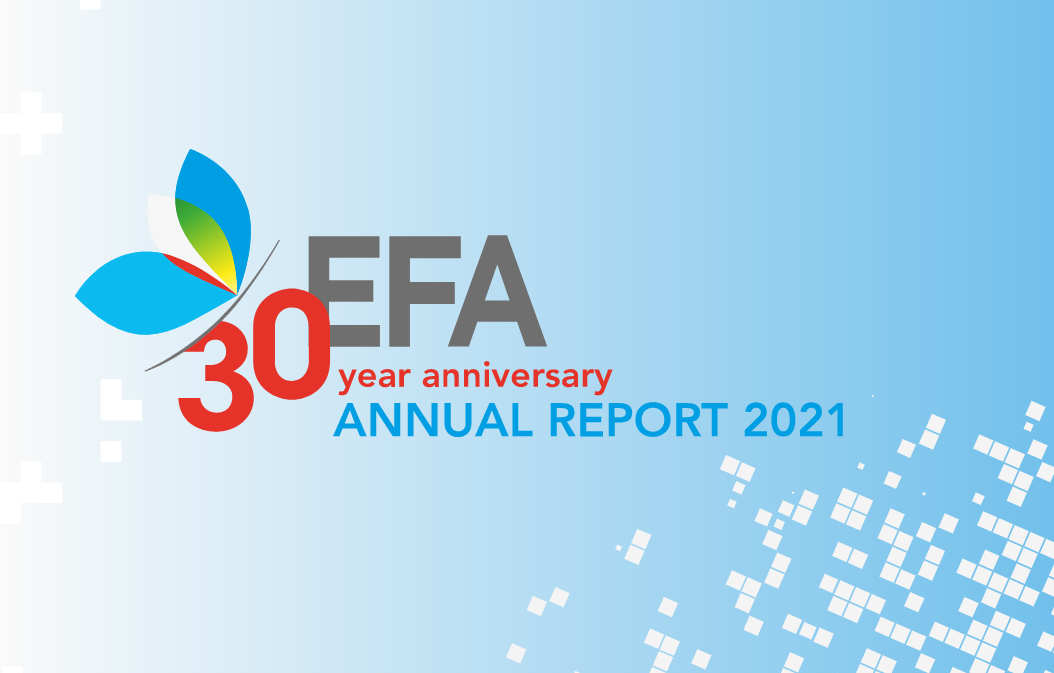The management board of the European Medicines Agency (EMA) has adopted a new document entitled "Implementing the European Medicines Agency's Road map to 2015: The Agency's contribution to Science, Medicines, Health; From Vision to Reality". The implementation plan follows the adoption in December 2010 of the EMA Road map to 2015, and sets out how this is expected to be developed. Both the Road map and its newly adopted implementation plan focus on optimising EMA's performance in 3 strategic areas: addressing public health needs, facilitating access to medicines, and optimising their safe and rational use. To tackle the first area - public health needs - gaps in medicine development will be looked at, as well as how best to respond to new and emerging scientific developments, among other things. The second aim of facilitating access to medicines will be achieved through actions which include increasing the focus on medicine development processes. Finally, the goal of optimising the safe and rational use of medicines is to be achieved by increasing the focus on patient safety, and improving information and communication tools for stakeholders.
Projects
EFA Patients’ Digital Prize for asthma and COPD digital care innovators
EFA granted a reward to digital health technologies that benefit and centre asthma and COPD patients through their design, accessibility and efficacy. A prestigious jury assessed the pillars for a successful tool, as well as the ways in which innovators have included digital collaboration and co-creation approaches between patients, healthcare providers and solutions developers at the core of their work.
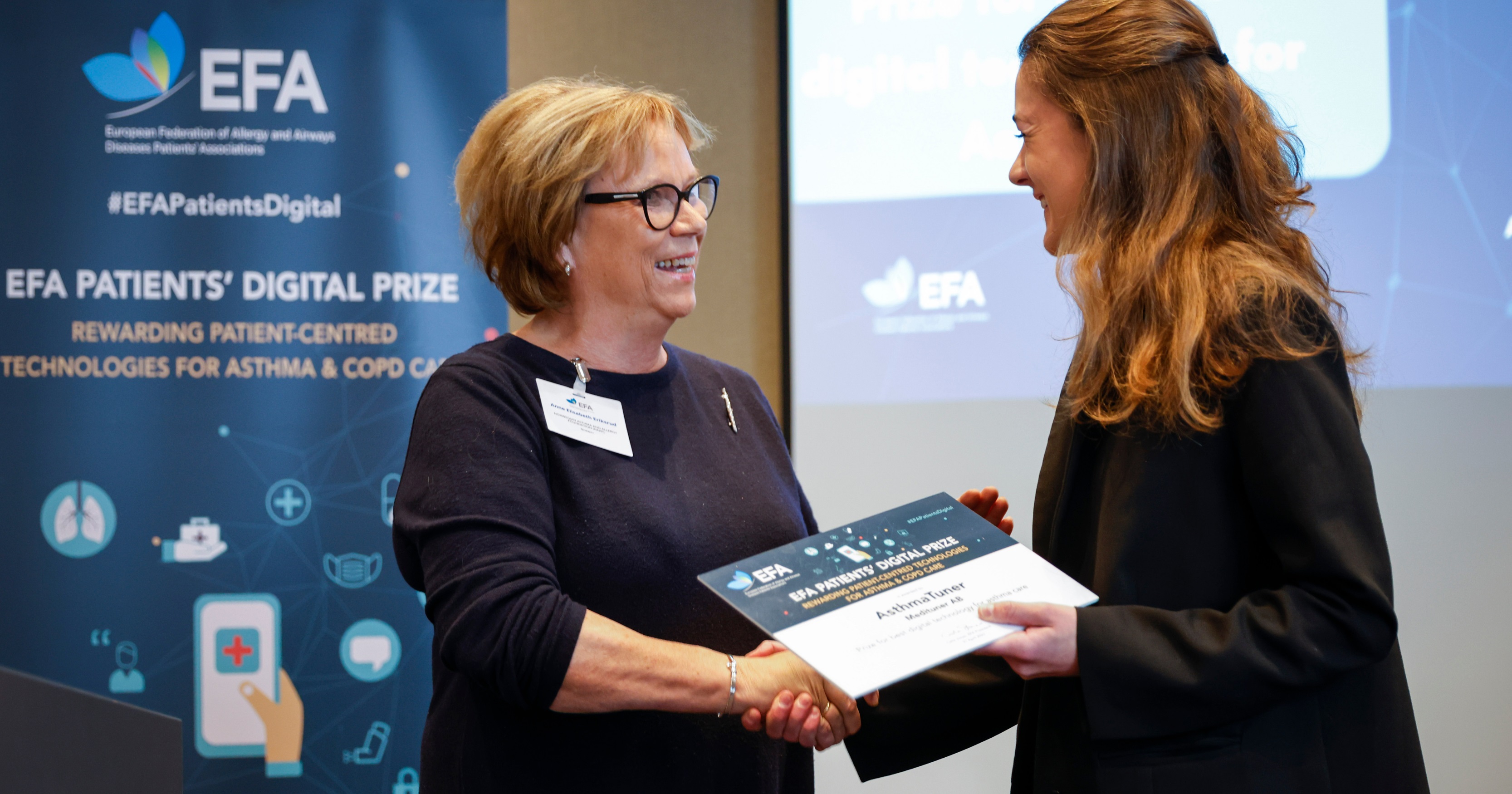
Atopic Eczema Consensus Europe
EFA is running a project to fill the awareness gap and develop a Consensus among the burden of Atopic Eczema/Dermatitis for Patients.
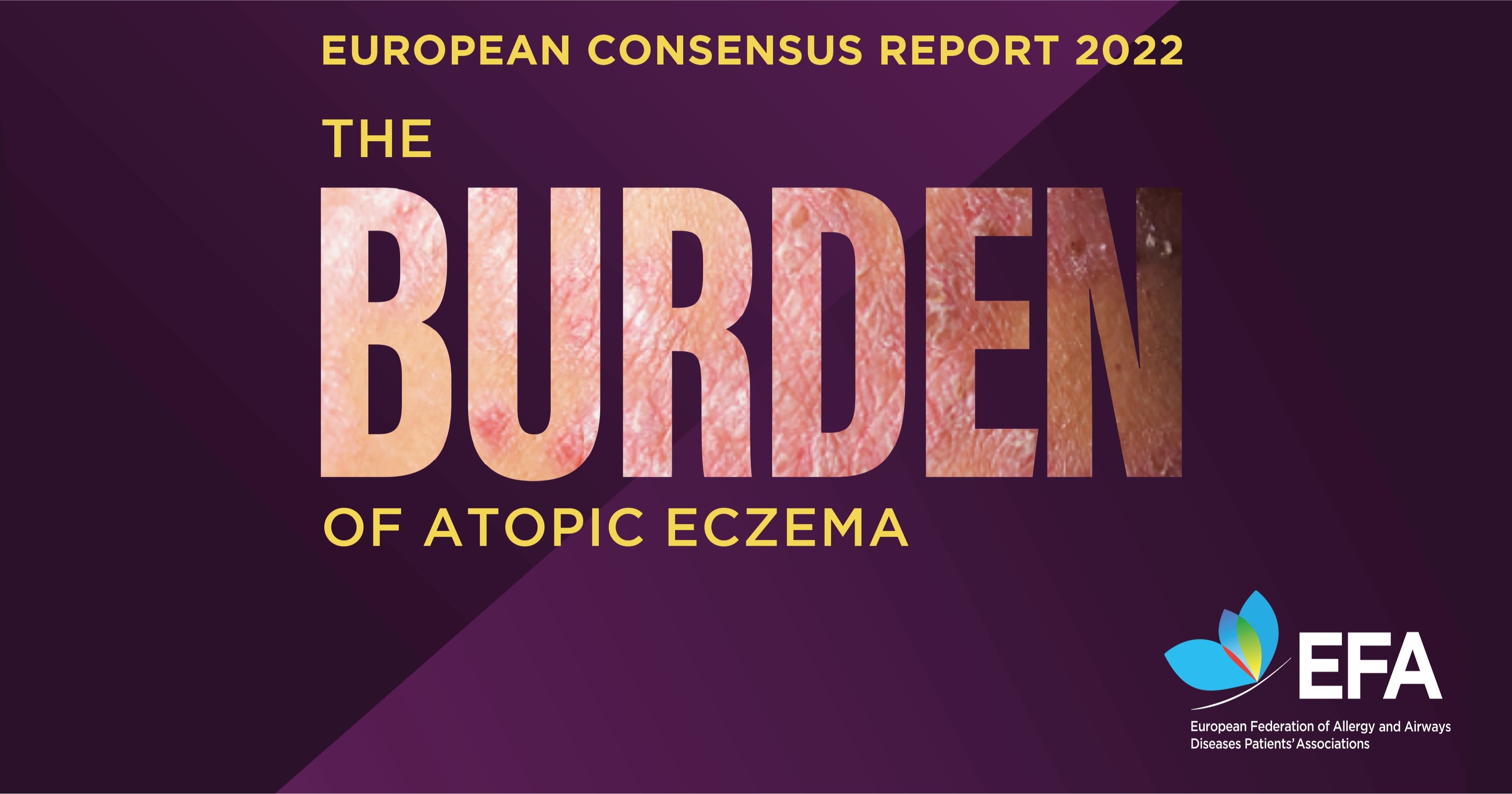
3TR
3TR is an IMI funded project studying the molecular pathways and mechanisms linked to response and non-response to therapy in different immune-mediated, allergic and inflammatory diseases, including asthma and COPD.

Campaigns
#KeepBreathing
The time is now for a lung health policy that helps Europe to Keep Breathing.

World Atopic Eczema Day
Every year on September 14th, EFA and the global community mark World Atopic Eczema Day, an opportunity to rise awareness about atopic eczema and improve understanding about the challenges it poses for people living with it.

Endorse the Breathe Vision for 2030
The Breathe Vision for 2030 outlines shared aims by respiratory partners to increase attention towards respiratory health, while also supporting the general awareness and understanding of lung disease in society.
Show your support to the Breathe Vision for 2030!
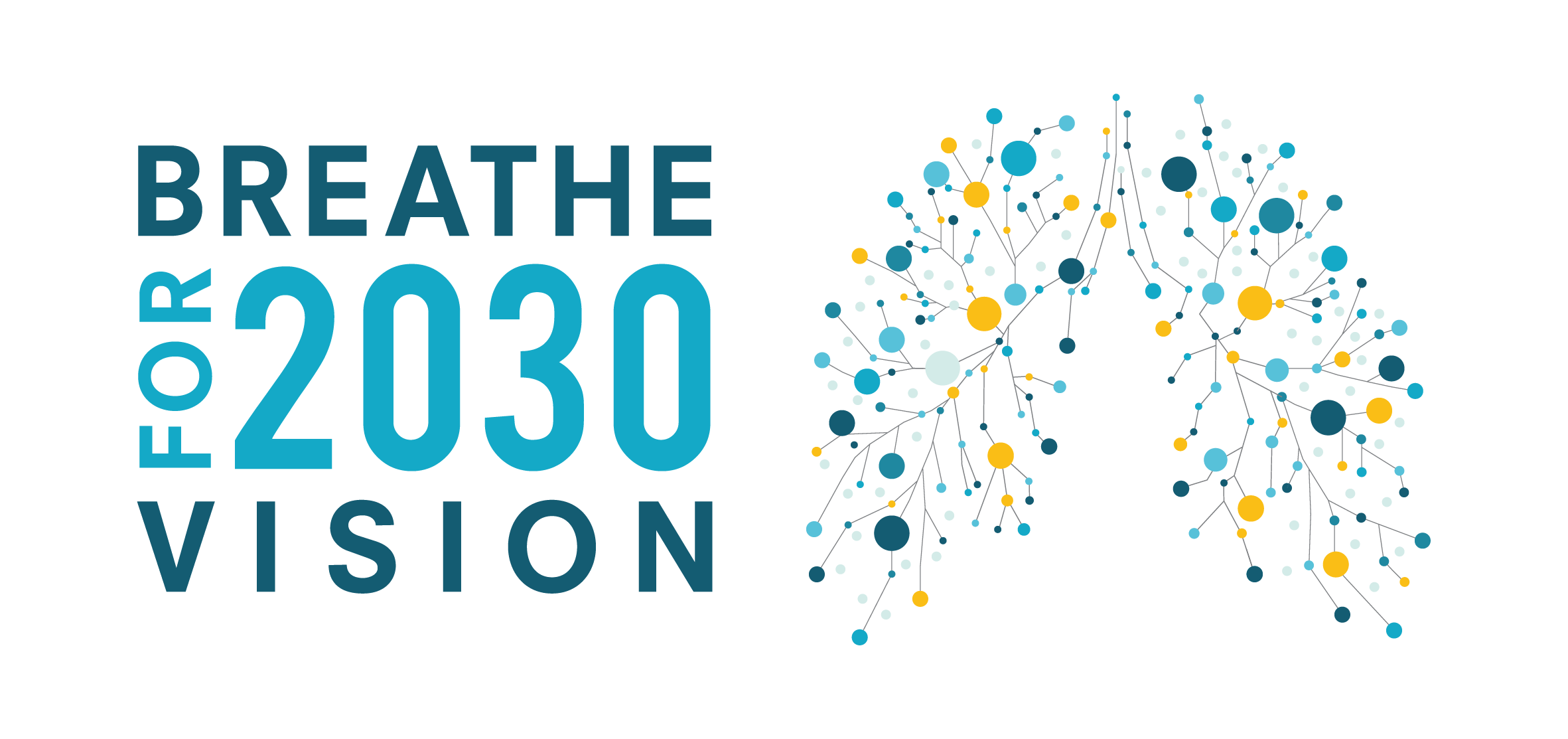
#ShowLeadership
#ShowLeadership is a pan-European campaign encouraging policymakers, stakeholders and individuals to take action to improve the situation of allergy, asthma and COPD patients in Europe. Only together, change is possible

Severely Asthma
Severely, ASTHMA! is a video series portraying six severe asthma patients and their families throughout Europe, each bringing a unique insight on diagnosis, care, social and family life, participating in research and living with air pollution.
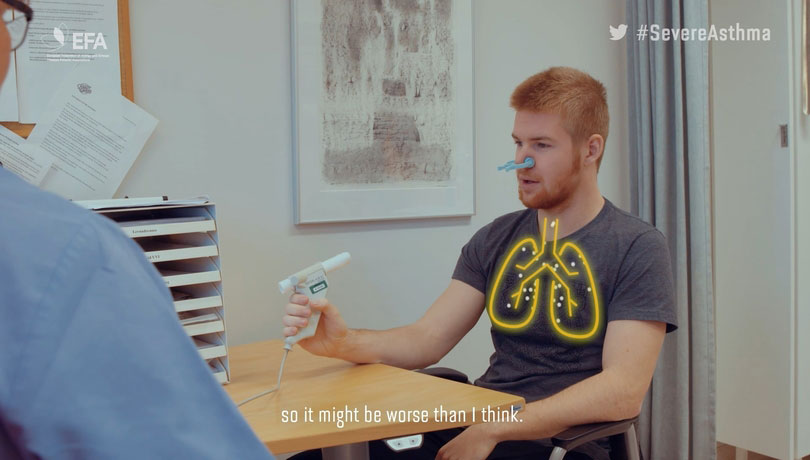
Publications
EFA launches “A vision for EU action on lung health 2024-2029” together with the European Lung Health Group
EFA and The European Lung Health Group call on EU policymakers to address lung health in a new publication. #KeepBreathing: A vision for EU action on lung health 2024-2029
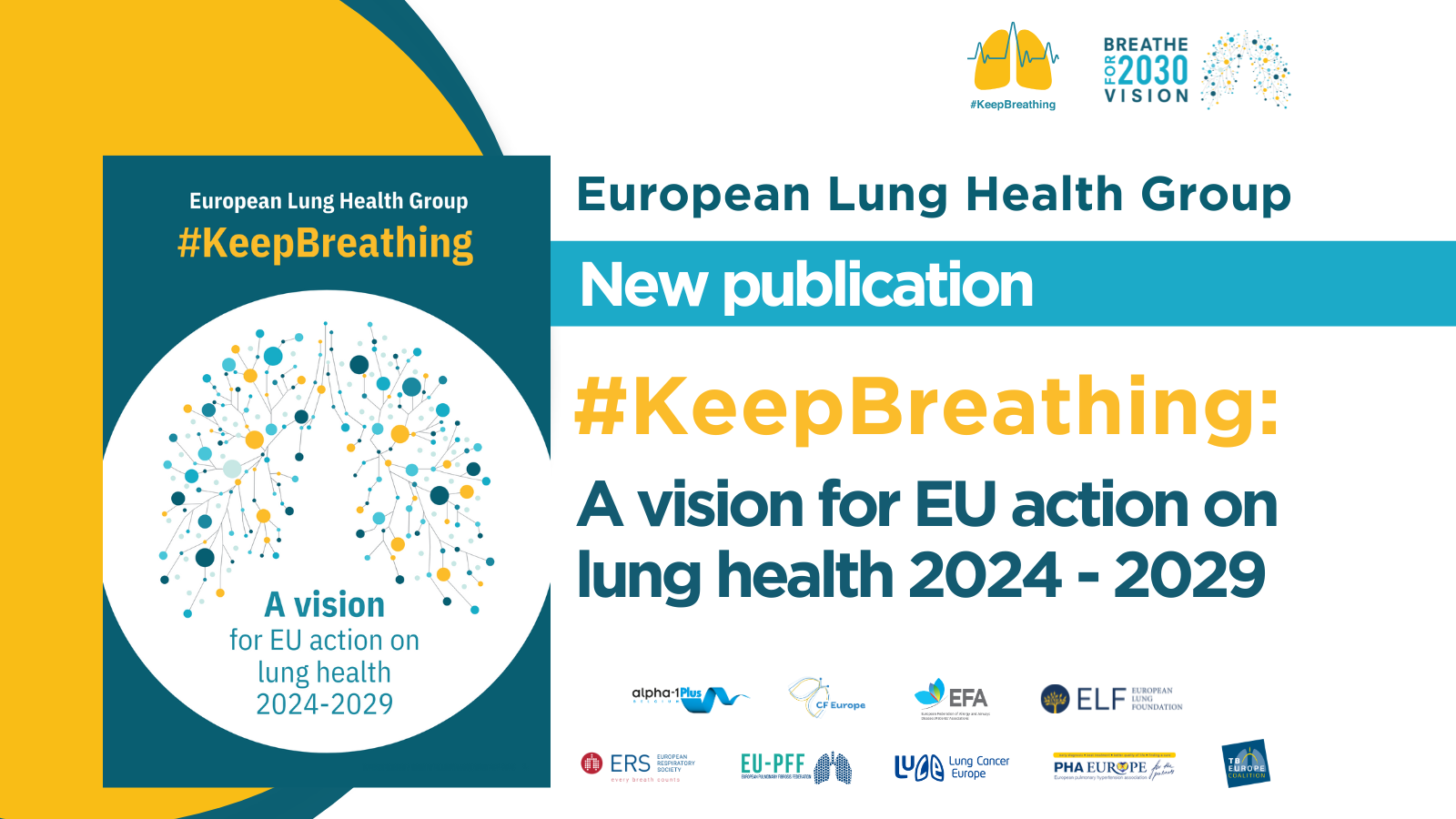
European Consensus Report 2022: The Burden of Atopic Eczema
Following one year of in-depth discussions around the reality of Atopic Dermatitis/Eczema (AD/E), the Atopic Eczema Consensus Committee launched their consensus on the struggle of AD/E patients in Europe: ‘The Burden of Atopic Eczema / Dermatitis - European Consensus Report 2022’.
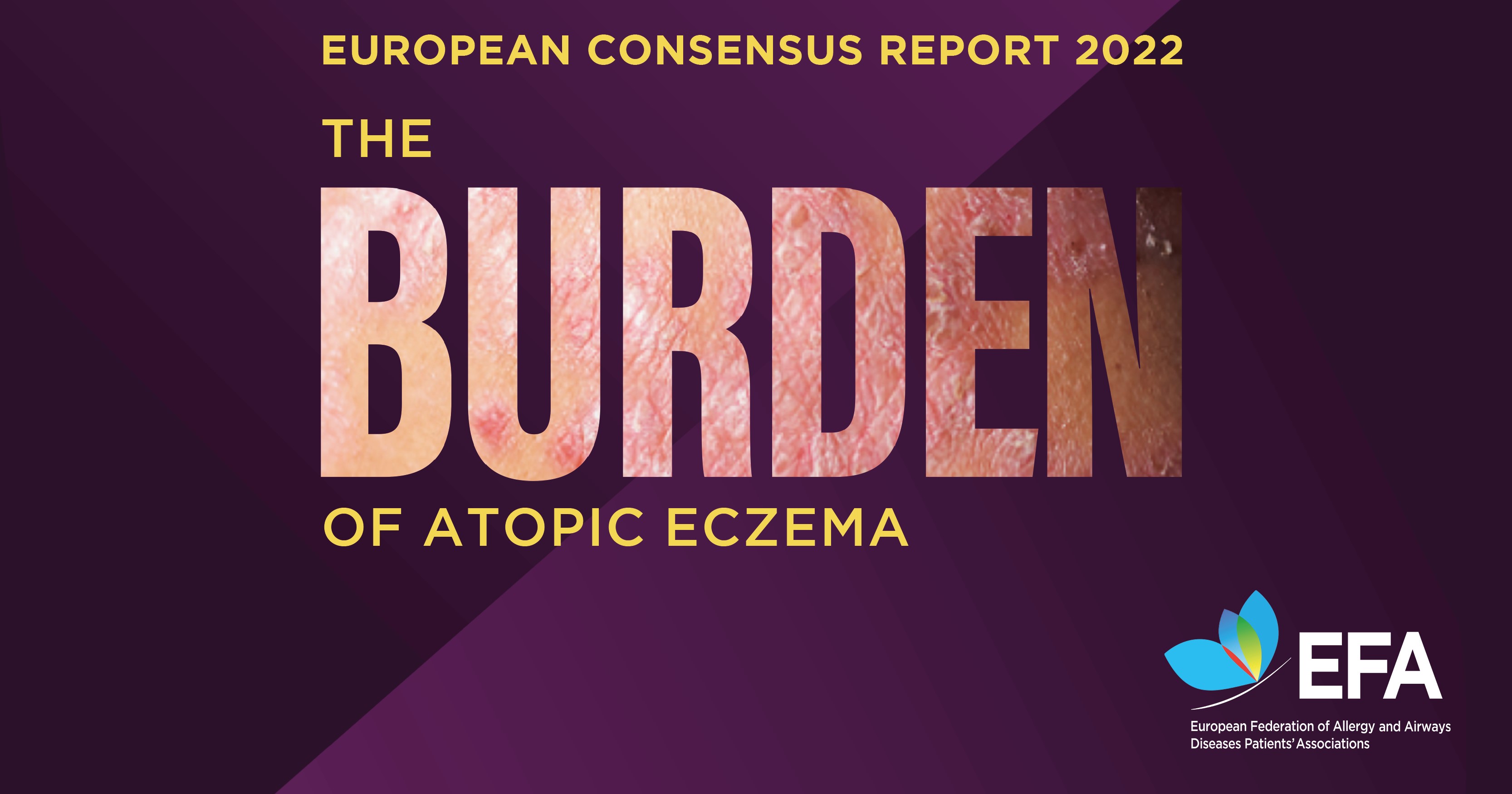
EFA launches AboutAsthma.org website to help asthma patients in Europe
EFA and the Global Allergy and Airways Patients Platform (GAAPP) launched an educational website on asthma for patients and carers – AboutAsthma.org. The website serves as a comprehensive patient guide to asthma and provides science-based information and tips to patients and carers across five areas: asthma symptoms, attacks, care, life with asthma and help.
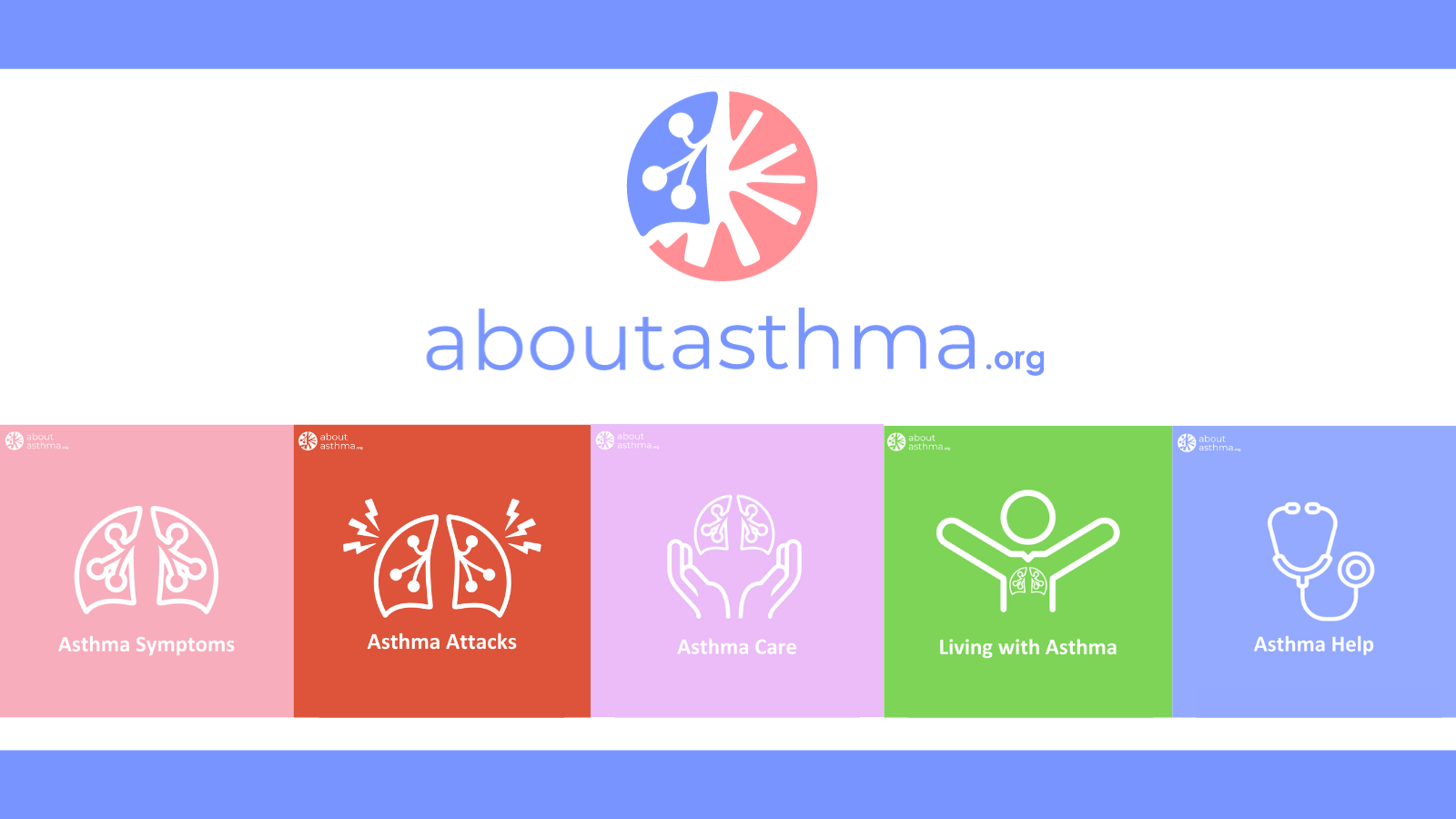
Improving lung health through the future European Health Data Space
The European Lung Health Group launched its policy briefing on “Improving lung health through the future European Health Data Space (EDHS)”. The brief highlights the opportunities the EDHS brings for patients with lung disease and healthcare providers, with concrete demands to make these benefits a reality.
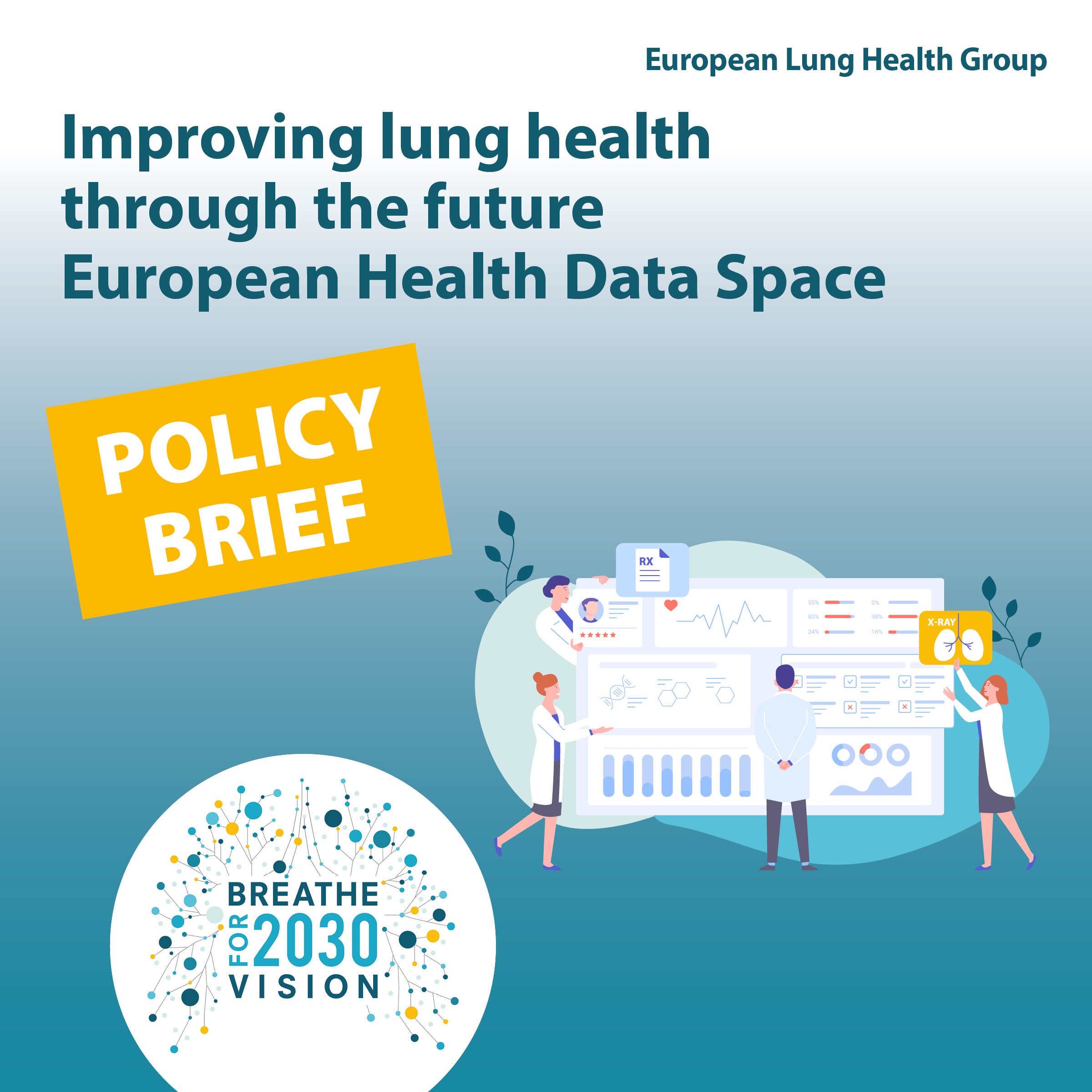
Annual Report 2021
Our Annual Report 2021 celebrates 30 years since EFA started and looks back on our work throughout 2021.
